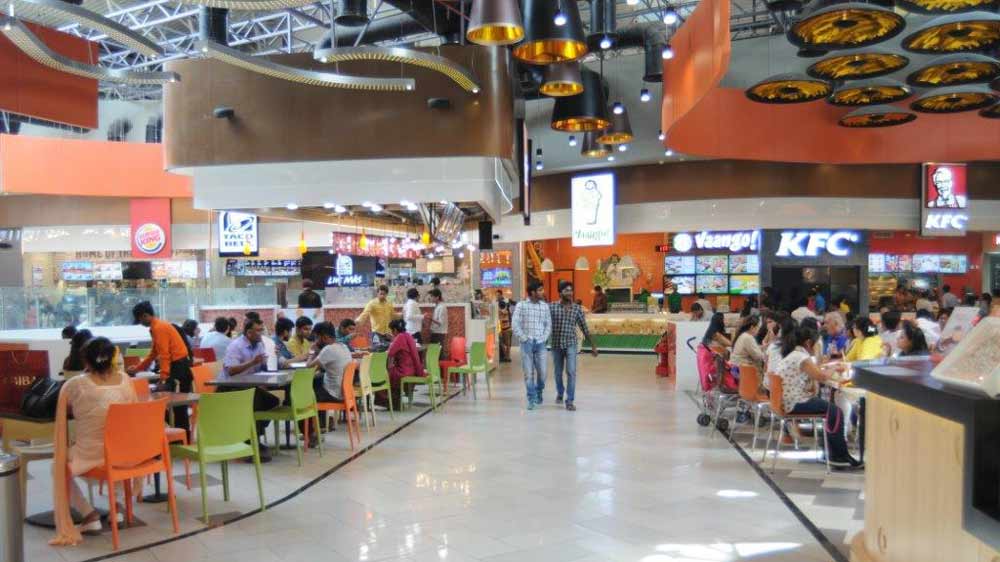|
A decade or so back, developed countries faced the brunt of obesity which was the price paid for their abundance of money, exposure, knowledge, opportunity and availability. Developing countries are in the same situation now! There are more than 2 billion people who are overweight/obese globally. The spike in obesity rates have retarded in high-income countries but are going uphill elsewhere. Reputed organizations such as the World Health Organization, UNICEF and the World Bank have made a combined effort and discovered that in 2016 Asia sheltered 50% of the world’s overweight children of which 1/4th were in Africa alone. India’s National Institute of Nutrition talks about the sorry tales of the urban population-almost a quarter of these men and nearly 50% of women are overweight. Thanks to urbanization, industrialization and globalization of food supply-Starbucks coffee, McDonalds, Pizza Hut, Toscano, Haagen Dazs and Ibaco are available in almost every city in every country increasing the individual’s exposure to various cuisines, foods and beverages. In the future too, maximum urbanization is expected to take place mostly in Asia and Africa. As people move from villages to cities, they are surprised to find convenient foods at cheaper prices and choose to consume them over fruits and vegetables owing to reduced expenses. This places an overpowering burden on governments that focus primarily on putting an end to the hunger epidemic. These governments must take into account the rising rate of convenient foods, their role as intruders affecting people’s health and make intelligent policies that handle these criticalities effectively.  Individuals Consume More of Ready-to-eat Foods than Fresh Ones! Individuals Consume More of Ready-to-eat Foods than Fresh Ones! Urbane World Ready-to-eat parathas and pizzas occupy top aisles in supermarkets, processed goods are strewn across almost all grocery shops and international food chains are widespread in malls and flourish due to the mad rush for branded food and high-end eateries. All these fanfare and glamour force people to shift their focus from the down-to-earth whole grains, produce and dairy towards fried foods and sugary drinks. These are coupled with the sedentary lifestyle practices of the urban Indian. An Indian nutrition survey found that most urban citizens work for an average of eight hours every day doing desk jobs and amongst them, it is only a quarter of these people who exercise daily. Even when these individuals have time (during weekends or public holidays), it is well-spent in watching television, playing video games or viewing a movie. Increased intake of processed foods, decreased practice of physical activity and phenomenal increase in mobile use might make people in developing countries to become sick before they get rich. This sickness might develop into a disease and collapse the entire health system. Countries’ Take on Food Taxes Certain countries have started levying higher sugar taxes, imposing higher food taxes on obese people and penalizing overweight citizens with increased rates. Soda tax movement started in the US and countries such as Thailand, Brunei and Singapore have adopted the same measures. In California, sugar tax levied on citizens is used to support child nutrition programs. Instead of improving medical treatment for the obese population, changes regarding taxation, awareness on the implications of obesity and promotion of localized food systems can help control obesity at a lower rate comparatively. City structure too plays a major role in molding a citizen’s BMI. An average-incomed citizen residing in a less walkable neighborhood had a higher Body Mass Index than any of the rich/poor citizens living in a walkable neighborhood, according to a recent study in China. Governments should come forward to regulate what goes in and out of the supermarket aisles. Insisting supermarkets to establish tie ups with local farmers encourages the use of locally grown produce that are fresh, healthy and less expensive. Farmer’s markets are starting to gain prominence everywhere due to various advantages. Read more on these markets at www.firsteatright.com. Controlling prevalence of unhealthy foods, restricting import or widespread establishment of processed food outlets and issuing incentives for practicing a healthier lifestyle with everyday physical activity are encouraging and practical ways to curb rising obesity rates. Addressing obesity and curbing their staggering rates are extremely helpful in advancing development of every nation and keeping the people healthier across the globe. Comments are closed.
|
AVOID FRAUD. EAT SMART.+91 7846 800 800
AuthorDietitian & Nutritionist Dr. Nafeesa Imteyaz. Archives
November 2022
Categories
All
Dr. Nafeesa's Blog @blogspot |
- Home
- Written Testimonials
- Consult
- Clinics
- Blogs
-
Diet & Nutrition
- Diabetes Reversal
- IVF IUI not needed for PCOS PCOD Infertility
-
Medical Nutrition
>
-
Disease & Conditions
>
- Infertility | PCOS
- Diabetes Mellitus
- Cholesterol
- Hypothyroid
- Kidney Problems
- Hypertension
- Cardiovascular Diseases
- Liver Diseases
- Gastro intestinal disorder
- Cancer
- Metabolic Disorders
- Orthopedic Disorders
- Eating Disorders
- Dietary Recall
- Weight Record Filled By Clients
- Online Payment Transaction Details
- Online Clients Weight Check Form
- Our Program Package Service Charges
- Weight Record 2017 Clients
- Measurements sent by Clients
- Terms & Conditions Of Payment
- Thanks. Your Form is Submitted
- Video Testimonials
- Lifestyle & Wellness
- Lifestyle & Wellness Blog
- Allergy & Intolerance
- Weight Loss / Gain
- Weight Loss / Slimming Blog
-
Disease & Conditions
>
- Life Cycle Nutrition >
- Sports Nutrition >
- Integrity in Nutrition
- Knowledge Centre
© COPYRIGHT 2022. ALL RIGHTS RESERVED. FRST HEALTHCARE PVT LTD.
Dr. Nafeesa Imteyaz of First Eat Right clinic, is the Best Dietitian Nutritionist in Bangalore. Best Dietitian Nutritionist in Pune. Best Dietitian Nutritionist in Hyderabad. Best Dietitian Nutritionist in Chennai. Best Dietitian Nutritionist in Mumbai. Best Dietitian Nutritionist in Delhi. Best Dietitian Nutritionist in Kolkata.


